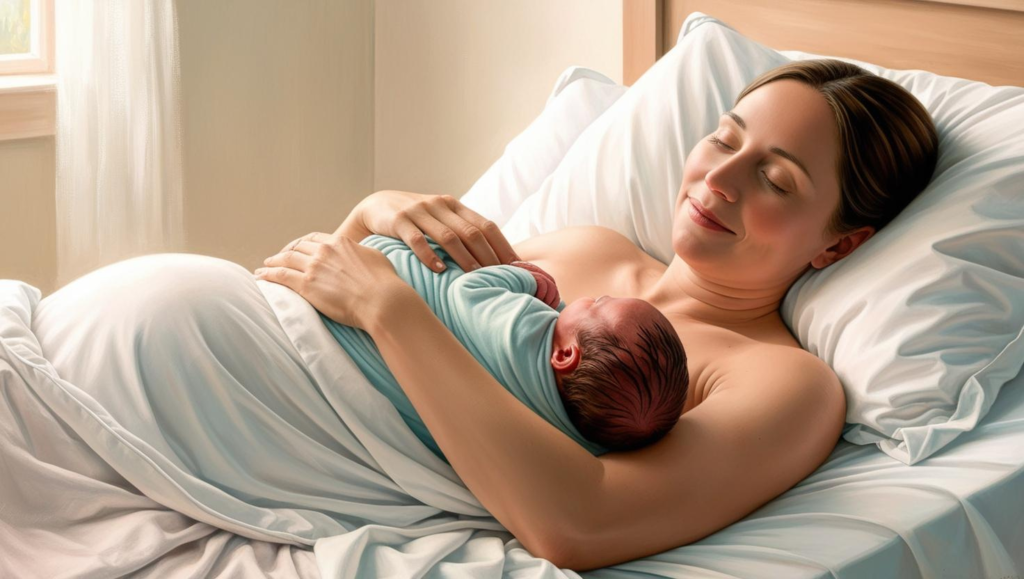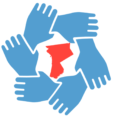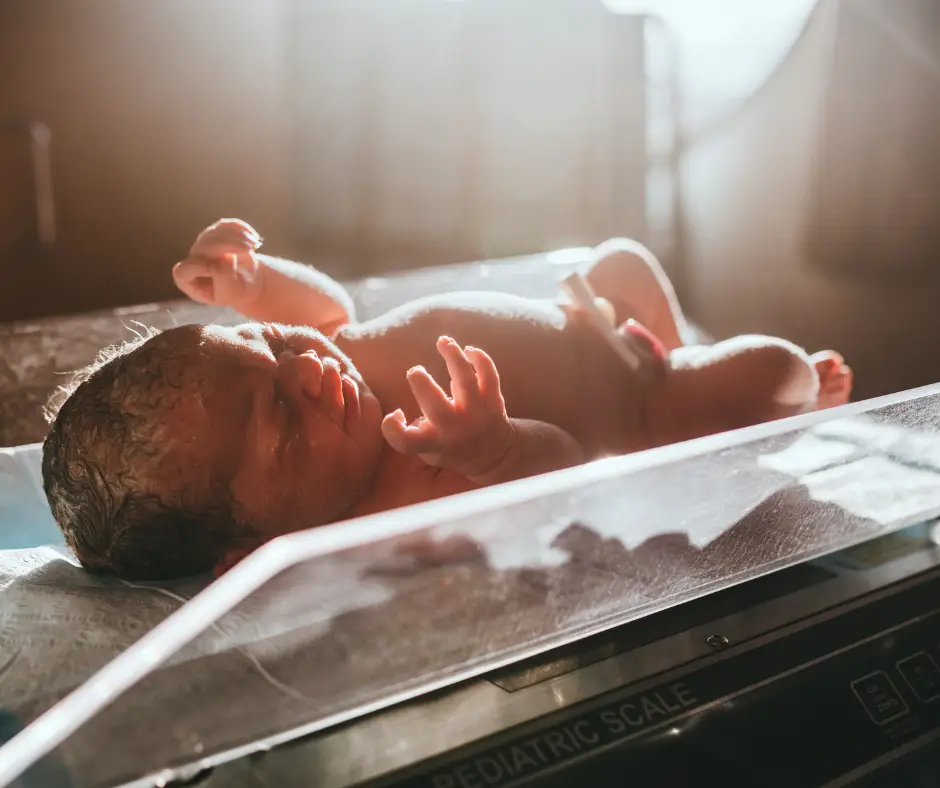
You did it! You had a baby! While everyone is looking at your new baby, your body is starting its own healing journey. This guide will help you know what to expect as your body gets better.
The First Day: Your Body Starts to Heal
The first day after having your baby brings big changes. Your body just did something amazing and now it needs to rest and heal.
What’s happening in your body:
- Your tummy starts to get smaller
- You will have bleeding as your body cleans itself
- Your hormones are changing, which might make you sweaty or moody
- You might feel sore from giving birth
How to take care of yourself:
- Rest as much as you can
- Let others help you with the baby
- Drink lots of water
- Eat good food that will help you heal
- Take medicine if you hurt – it’s OK to feel better!
Days 2-7: Your Body Works Hard to Heal
This week, your body keeps healing and you start to learn how to be a mom.
What’s happening in your body:
- Your breasts get full of milk around day 3 or 4
- Your tummy keeps getting smaller
- You might be sore where the baby came out
- Going to the bathroom might be hard
How to take care of yourself:
- Keep resting when you can
- Take medicine before the pain gets bad
- Move around a little, but don’t lift heavy things
- Watch for signs that something is wrong, like fever
- Eat foods with fiber to help you go to the bathroom
Weeks 2-6: Getting Stronger Each Day
As you get used to being a mom, your body keeps changing and healing.
What’s happening in your body:
- Bleeding starts to slow down
- Your tummy keeps getting smaller each day
- Your hormones are still changing a lot
- You might sweat at night
- Your breasts adjust to feeding your baby
How to take care of yourself:
- Start moving a bit more if your doctor says it’s OK
- Don’t try to do too much too soon
- Watch how you feel – being sad sometimes is normal, but feeling sad all the time is not
- Find a feeding plan that works for you and your baby
- Think about what you want to ask your doctor at your checkup
The 6-Week Checkup and After
Most moms see their doctor around 6 weeks after having a baby. This is a big step, but you’re still healing.
What’s happening in your body:
- Your doctor will check how you’re healing
- You might talk about birth control
- Your doctor might say you can do more activities
- Your hormones are still changing
How to take care of yourself:
- Start easy exercise if your doctor says it’s OK
- Keep eating healthy foods
- It’s OK to say no to visitors or extra work
- Remember that getting better takes more than 6 weeks
Many moms still don’t feel all the way better at 6 weeks. That’s normal!
Months 3-12: Your New Normal
The first year with your baby brings more changes to your body and your life.
What’s happening in your body:
- Your hormones start to be more steady
- You might still not sleep through the night
- You start to get your energy back
- Your body shape might be different than before
How to take care of yourself:
- Find ways to move your body that you enjoy
- Keep eating good foods
- See a special doctor if you leak pee or have pain
- Pay attention to how you feel emotionally
Taking Care of Your Feelings
Healing isn’t just about your body. Your feelings need care too:
- Baby blues: Most new moms feel sad or cry easily in the first 2 weeks
- Postpartum depression: Some moms feel very sad for a long time and need help
- New identity: You’re learning how to be yourself and a mom at the same time
- Changing relationships: Things might feel different with your partner, friends, and family
Remember: Everyone Heals Differently
Every mom’s healing journey is different. How fast you heal depends on:
- How you had your baby (pushing or surgery)
- If you’ve had babies before
- How much help you have
- Health problems you had before
- How you feed your baby
- How much sleep you get
The most important thing to remember is that healing isn’t a race. Your body did something amazing by growing and delivering a baby. It deserves time to get better.
Be kind to yourself. Heal at your own speed. Ask for help when you need it. Taking care of yourself is also taking care of your baby!
References:
- American College of Obstetricians and Gynecologists
- World Health Organization
- Journal of Midwifery & Women’s Health


